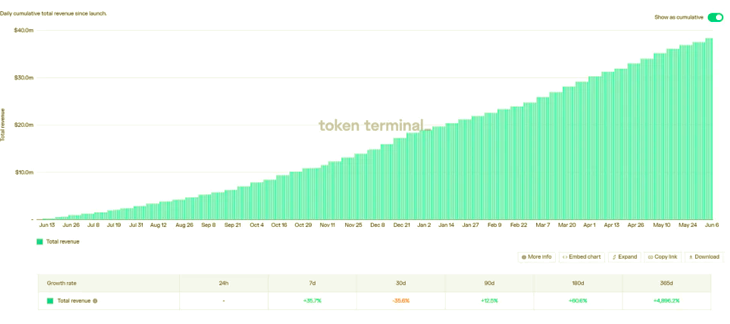Renowned crypto analyst Willy Woo published research on the Ribbon project and its entry into the options market. The study discusses Ribbon’s strategy and business analysis which has seen it steer through the bear market.
Ribbon Finance is a decentralized options product, which is now live in V3. It has the second largest TVL in the options category at $170 million. Interestingly, the Ribbon is still showing “November levels” whereas DeFi’s entire TVL is down by more than 50%.
“The Vault fee structure consists of an annualized 2% management fee and a 10% performance fee. If the strategy is profitable this week, the vault charges 0.038% of the total funds (2% annualized) and 10% of the profit; otherwise, no fee is charged.”
The largest growth in TVL is actually from selling Put vaults. This is because stablecoins are safer investments as compared to volatile cryptocurrencies in a bear market. Among other vaults, T-stETH-C showed tremendous growth partly due to the upcoming Merge.
What about RBN?
RBN currently has a market cap of around $47 million and even imitates the Curve economic model. Users receive a veRBN by locking in the RBN for a maximum of two years. Furthermore, veRBN holders get a share of the agreement revenue as well as governance voting rights.
Implied Volatility (IV) of options helps in assessing investor expectations of futures market. As per the report, IV decreases when investors’ judgment of the future market direction is similar to the current trend. Similarly, IV increases when expectations are different to the current market.
Since Q4 2020, crypto market options TVs have been moving lower overall except for crashed during May 2021 and May 2022. The major reason is that IV is directly proportional to option prices. So, when the options market is oversupplied, option prices fall, which in turn causes IV to fall.
Ribbon has the general risks of an options platform despite the recent trend of Put selling. This allows users to earn stablecoins and overtake Covered calls on TVL. However, the risk-return ratio has continued to decline recently. Thus, Ribbon must introduce new strategies or products to attract customers or run the risk of losing share.



